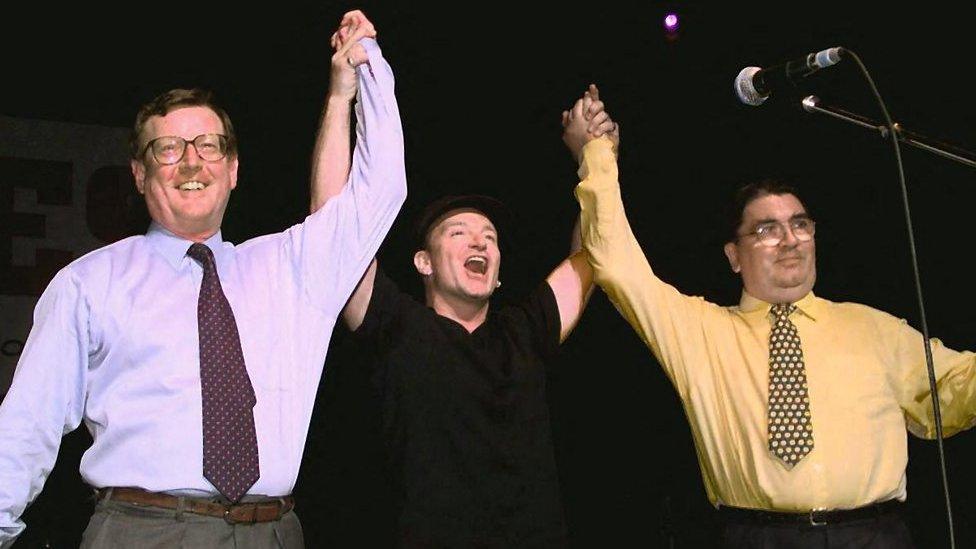Good Friday Agreement: Has peace deal become a political football?
- Published
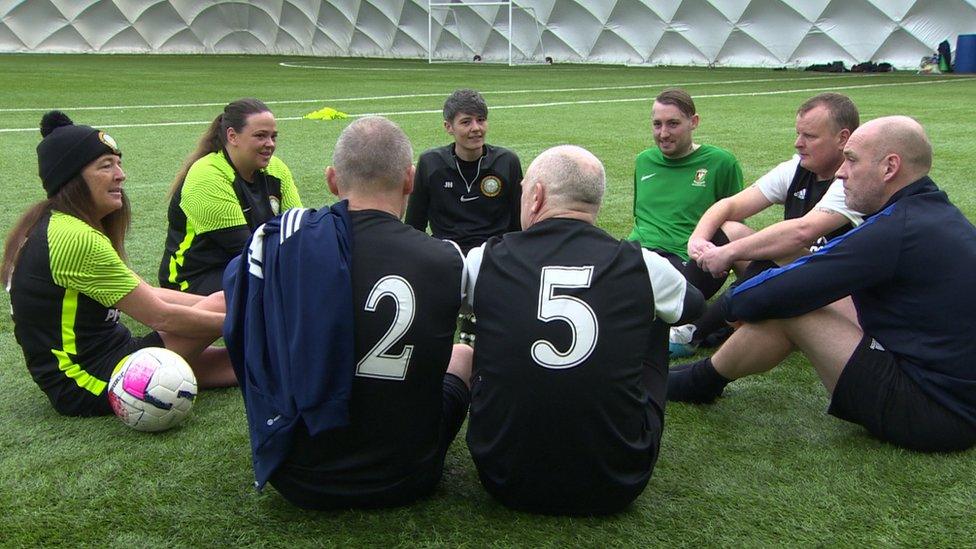
The goal of the Good Friday Agreement was to end the 30 years of conflict that came before it.
But 25 years later, what does the agreement mean to people here, and has it become a political football?
Footballers from across Northern Ireland came together to have a metaphorical, and physical kick-about.
Some of our players were in their 20s - part of the so-called peace generation - while others were in their 50s and lived through the Troubles.
"The Good Friday Agreement would mean quite a bit to me," said Megan Ross, who is in her 20s.
"My parents were born in the 60s in east Belfast and they have quite personal memories of the Troubles.
"I'm personally quite grateful and privileged to grow up in a time where all I know of that time is the stories I've been told.
"We've come a long way in the last 25 years but we still have a wee bit to go."
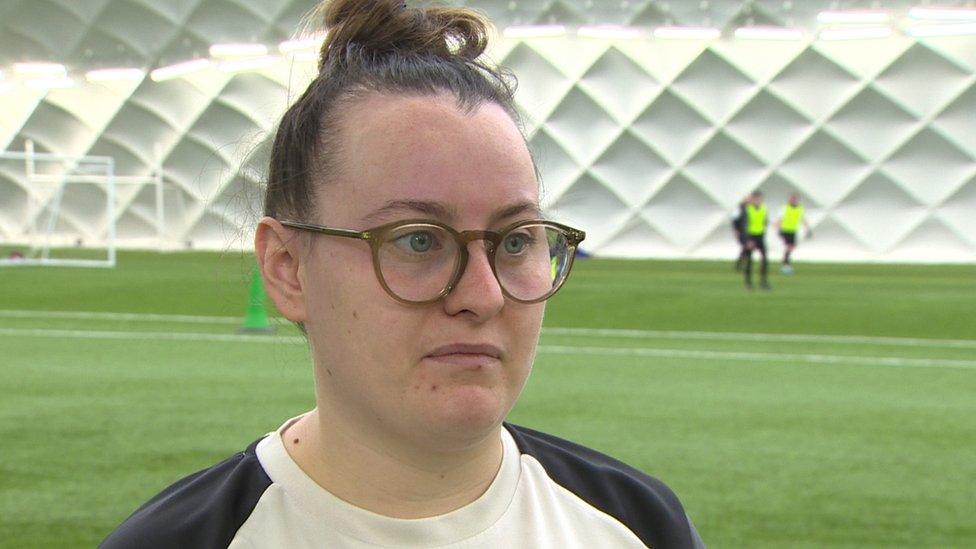
Megan Ross is grateful to have grown up in a time of relative peace
Colin Winton, who is in his 50s, said he had seen massive changes in Northern Ireland since the Good Friday Agreement.
"It's not them and us anymore," he said.
"The country is more relaxed now compared to what it was back then.
"Back then you didn't know if you could go to the shop - was something going to happen? It's definitely changed for the better."
Karla Ferguson Jackson is in her 20s and said she thought sport helped communities in Northern Ireland to integrate.
"My mum's a Catholic and my dad's a Protestant, so to me it's always been a normal thing that you're part of both sets of communities and trying to understand both sets of histories," she said.
"I think football is a great thing because it brings communities together.
"You're playing with people that you wouldn't necessarily play with. I just think that when it boils down to it, religion is really the last thing you would ask someone when you strike up a conversation.
"It's not at the forefront of people's minds which is a good thing."
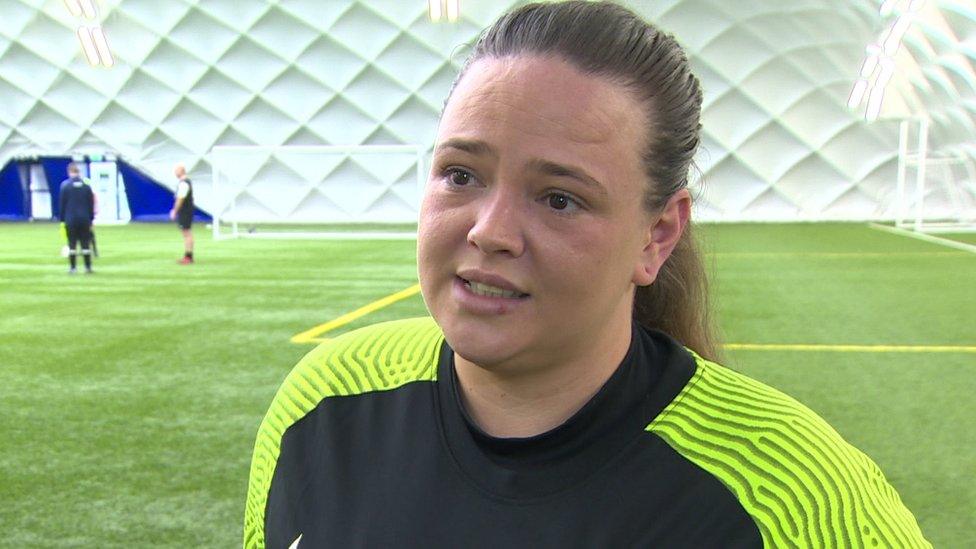
Karla Ferguson Jackson says football brings communities together
Rory McEvoy, now in his 50s, came to Northern Ireland from the Republic of Ireland when he was 13.
He said the Good Friday Agreement meant "freedom for the people of our part of the world".
"Coming here at that age, you didn't know what was going on. You couldn't make head nor tail of it," he said.
"Growing up through that was an experience you'll never forget but you know what, things have changed and it's brilliant to see."
'Moving forward together'
For others, the agreement is just a bit of history.
"I just know stories that it was the end of the Troubles," said Kirsti Farren who is in her 20s.
"I think we're going in the right direction so I'd like to be a part of that."
Jacqueline Hawkins is in her 50s and said things had "changed big time" and that Northern Ireland was "more relaxed".
"I'd like my grandkids to grow up where there's no bickering - just being happy and everyone getting on," she said.
Noel Dean said he believed young people mixed more with different communities than they did when he was in his 20s.
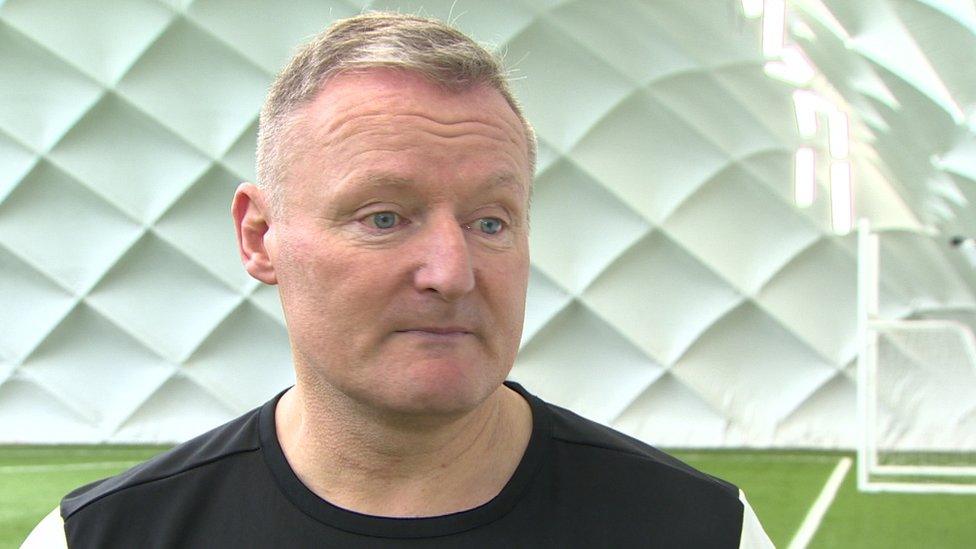
Noel Dean believes younger people mix more with those from other backgrounds
"The Good Friday Agreement brought peace to Northern Ireland. Whether it was a perfect peace or not - that's debateable," he said.
"You have to compromise on these things - you can't have everything.
"But for me it meant peace, totally different to what I was used to growing up with the bombs and bullets flying - all that had stopped.
"I think in the main the place has prospered and young people now are more integrated, and they're just getting on with it."
What are NI's plans for the 25th anniversary?
US President Joe Biden, former US President Bill Clinton and ex-secretary of state Hillary Clinton, former UK Prime Minister Tony Blair and former Taoiseach (Irish prime minister) Bertie Ahern are among those expected to visit Northern Ireland for commemorative events.
Both Queen's University Belfast and Ulster University (UU) are hosting events to mark the anniversary.
Large, silent video portraits of 14 of the politicians who negotiated the peace deal will be displayed at UU's Belfast campus from 15 to 20 April.
The university is also launching a new leadership programme, a tourism summit and an education project based on journalist Lyra McKee's legacy.

Declan Harvey and Tara Mills explore the text of the Good Friday Agreement, scrutinising the deal's wording and hearing from some of the people who helped get it across the line.
Click here to listen on BBC Sounds.

- Published3 April 2023
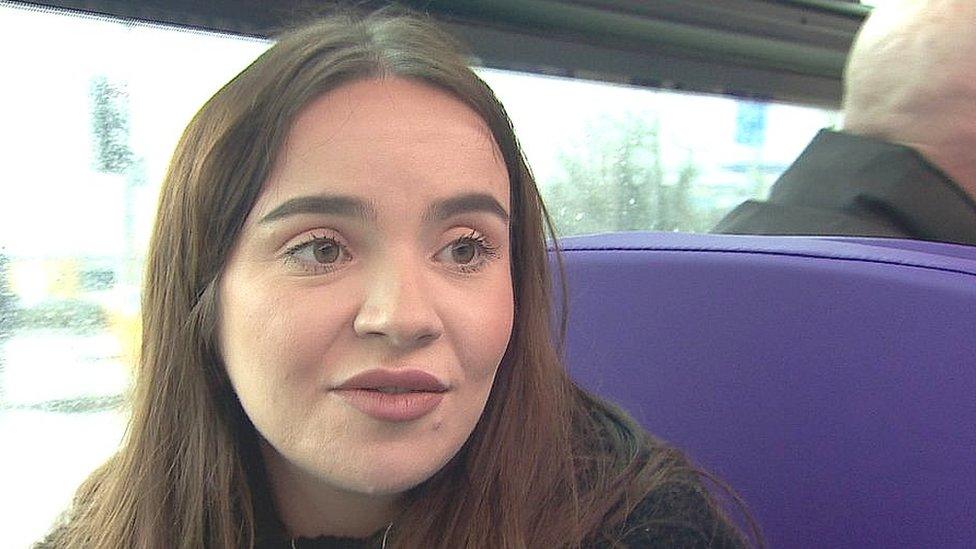
- Published26 March 2023

- Published31 March 2023
